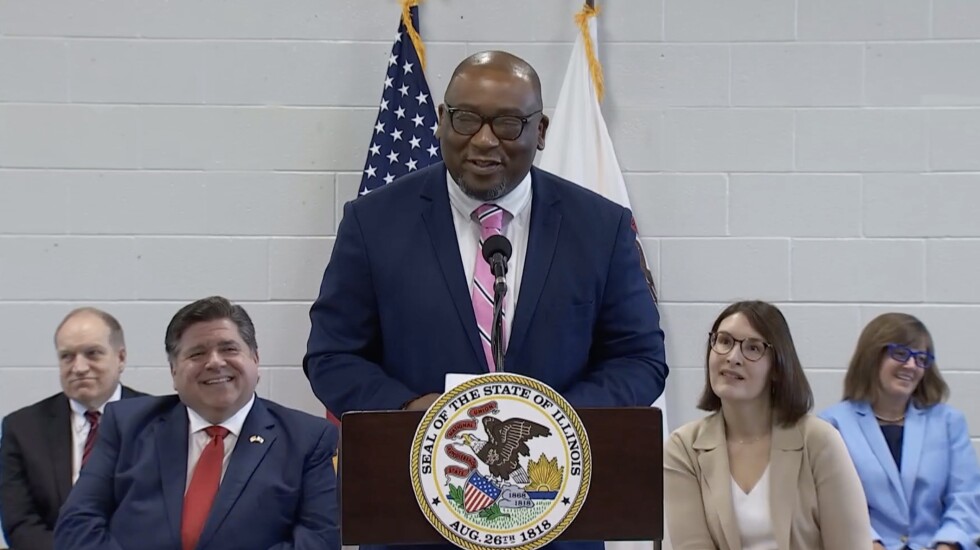
Gov. J.B. Pritzker on Friday signed legislation that will combat the state’s food deserts by sending $20 million to grocers to open and expand stores in underserved rural towns and low-income neighborhoods.
The measure establishes the Illinois Grocery Initiative, a new policy that will support existing grocers and also help encourage new grocers by allowing stores receiving grants to be able to receive tax credits and other incentives.
According to a 2021 Illinois Department of Public Health report, there were 3.3 million Illinois residents living in a food desert. And a WBEZ-Chicago Sun-Times analysis found low food access in Chicago has jumped by 63% in the last decade. That includes the recent store closings of a Walmart Supercenter in Chatham and a Whole Foods in Englewood and an Aldi in Auburn Gresham — leaving residents scrambling to find stores where they can buy healthy foods at a low cost.
“Too often residents have to cross county lines, sometimes state lines to pick up bread and milk and produce as residents here in Venice know all too well,” Pritzker said at the bill signing in the Metro East region. “The Illinois Grocery Initiative will help increase access to affordable, nutritious food while helping to revitalize local economies by creating new small businesses or helping to save existing ones.”
The governor said 20% of the initiative will help stores replace aging equipment with energy-efficient alternatives to help keep costs down and help keep their doors open.
The grants will be available to grocery stores that are organized as independently owned, for-profit, co-ops and nonprofit organizations, as well as grocery stores owned by units of local government, according to bill sponsor state Sen. Christopher Belt, D-Swansea.
Illinois Department of Commerce and Economic Opportunity Director Kristin Richards said information will be posted on the ILDCEO website as soon as grant applications can be filed. The department will also commission a study to explore the reasons for market declines, historical disparities in access to food and to provide potential policy solutions.







